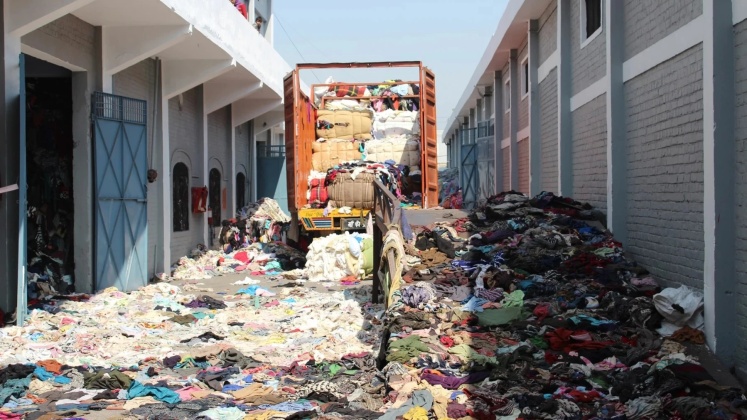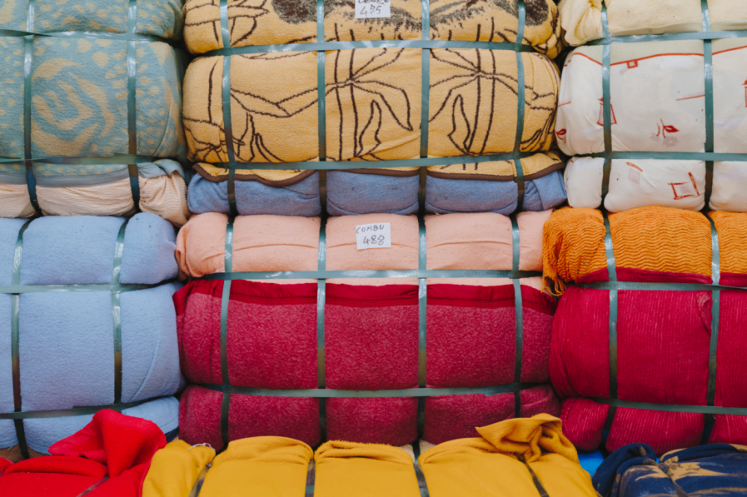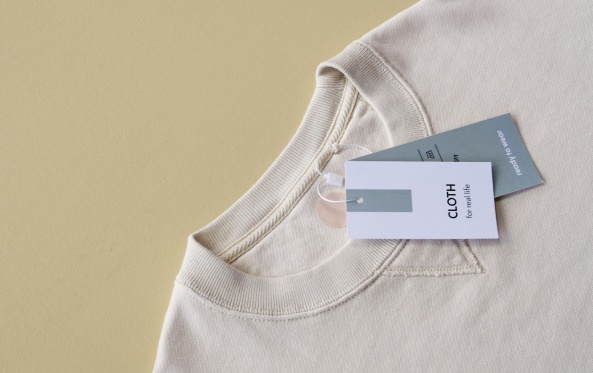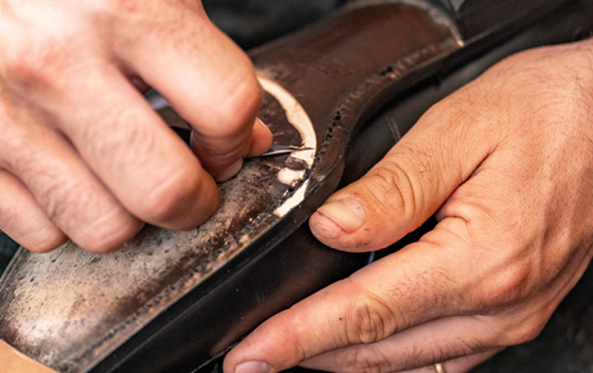
Collection: the first link in the circular economy
Providing collection points in your stores encourages customers to sort out their textiles and footwear and give them a second life.
Work with us in turning this ambition into action!

Collection key figures
(source : study June for Refashion, 2024)
3,5
In 2024, 3.5 billion clothing, household linen and footwear (CHF) items were placed on the French market. But only 32% of the total will get a second life through collection .
3 out of 4 French people
Yet consumers are ready to do more. Narly 3 out of 4 French people sort out their wardrobes every year... but 44% of them don't know where to drop things off (source: June survey for Refashion, 2024).
Let’s get the industry moving!

Analysis: why is collecting important?
Collection is the first step in the second life of textiles and footwear!
Without collection, there can be no sorting. And without sorting, there can be no second-hand goods, recycling nor recovery... So there can be no circular economy! That’s why it all starts here.
Collecting together
Consumers want easily accessible drop-off points. They view in-store collection as a more convenient and satisfying option. In-store collection points are an opportunity for you to address the waste issue in a simple and responsible way!
Based on the reliable traceability data available, we can see that we are on the way to achieving the goal set for our industry: collecting 60% of textiles and footwear placed on the market by 2028!

Refashion & you
You can make a difference by getting involved in one of the two collection schemes offered by Refashion!
Find out more about the two schemes:
Benefits of collecting:
1.
Connect with your customers and engage your team
2.
Greater visibility: your store will appear on the Refashion Map
3.
Contribute actively to circular economy by making it easier to sort materials and extend their service life
4.
Turn today's waste into tomorrow's resources
5.
Improve your impact materiality and show it!
Improve your impact materiality, and show it!
Why is it useful to include collection in your non-financial reporting?
- Collection is a cornerstone of circular economy. As the first link in the recovery chain, it plays a key role in extending the life of materials, reducing dependence on virgin resources and limiting the emissions associated with the extraction, processing and end-of-life of textiles and footwear.
- Satisfy the increasing expectations of consumers, investors and institutions in terms of sustainability, traceability and resource optimisation.
Structure your materiality analysis to reflect extra-financial reporting requirements (CSRD, VSME, etc.).
Collection has a direct impact on the use of resources as well as on waste management. It addresses key issues in several areas:
- Circular economy: demonstrate your commitment through concrete indicators (tonnages collected, density of the drop-off points, awareness-raising initiatives, in-house training, sustainable partnerships).
- Energy and greenhouse gases: show how you have reduced your indirect emissions by using less virgin fibre and also by managing waste responsibly.
-
Booklet “Nothing is thrown away, everything is collected”
Need help?
For further information:
For any questions, please consult the FAQ or complete the contact form
A dedicated hotline is available Monday to Friday, 9am to 5pm: +33 (0)1 89 16 94 06



